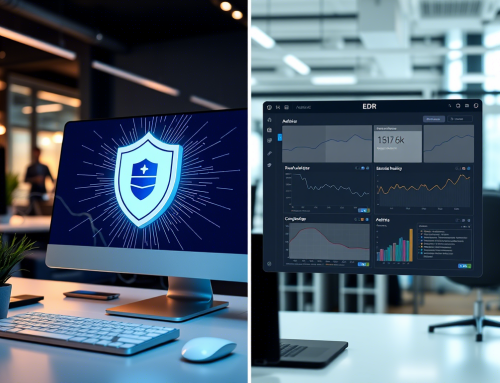Cybersecurity is often synonymous with pentesting (penetration testing). It’s an exciting career that involves identifying vulnerabilities in systems by attempting to “hack” into them before malicious actors do. However, while pentesting grabs the spotlight, the field of cybersecurity is far more diverse than most realize.
If you’re an IT professional, a cybersecurity enthusiast, or exploring a career pivot, this guide will introduce you to some rewarding alternative careers in cybersecurity. Whether you’re looking to escape the competitive pentesting job market or discover a role that better suits your skills, you’re in for an eye-opening exploration of options.
Why Look Beyond Pentesting?
Pentesting is a well-known cybersecurity role, but that popularity has its downsides. The market for pentesters has become more saturated in recent years, making it harder to break into or advance in the field. Additionally, professionals in this space sometimes report less financial fulfillment than they’d anticipated.
The good news? Cybersecurity is an incredibly dynamic field with options that extend far beyond pentesting, offering paths that are equally impactful, lucrative, and in demand.
Top Alternative Careers in Cybersecurity
Here are some lesser-known roles worth exploring in this exciting industry, complete with insights into their responsibilities, required skills, and career potential.
1. Security Engineer
What They Do:
Security engineers focus on designing, building, and maintaining robust security systems and protocols to protect organizations from cyber threats. Instead of identifying vulnerabilities, like pentesters, they proactively build defenses to avert attacks.
Key Skills:
- Familiarity with security tools and products.
- Experience in systems integration and implementation.
- Problem-solving and troubleshooting expertise.
Career Opportunities:
Many security engineers take on roles in pre-sales or post-sales for organizations, helping customers adopt security solutions effectively. With businesses scaling their digital footprints, these professionals are in high demand.
2. Security Operations Center (SOC) Analyst
What They Do:
SOC analysts monitor an organization’s network in real-time, watching for suspicious behavior and responding to security incidents. They operate on the front lines of cybersecurity defense, mitigating risks as they arise.
Progression Levels:
SOC analysts typically begin at Level 1 (entry-level), where they monitor activity and flag threats. With experience, they can move into Level 2 or Level 3 roles, which involve complex investigations and response strategies.
3. Cybersecurity Solution Architect
What They Do:
Cybersecurity solution architects design high-level frameworks that secure organizational infrastructure. They ensure that systems are scalable and resilient to evolving threats.
Key Skills:
- Deep understanding of both cybersecurity and IT infrastructure.
- Ability to identify risks and proactively mitigate them using effective designs.
- Proficiency in cybersecurity tools and enterprise systems.
For those with a knack for strategy and technology, this role offers tremendous growth opportunities.
4. Governance, Risk, and Compliance (GRC) Specialist
What They Do:
A GRC specialist helps organizations meet regulatory standards, enforce policies, and minimize risks. They often play an advisory role by conducting audits, managing compliance frameworks, and ensuring the organization aligns with laws like GDPR or SOX.
Why It’s Rewarding:
Compliance isn’t just about ticking boxes; it’s about building trust, mitigating financial risks, and enabling long-term business success.
5. Cybersecurity Auditor
What They Do:
Cybersecurity auditors evaluate an organization’s security measures, identifying vulnerabilities and providing recommendations to improve. Their work ensures that systems are safe, efficient, and compliant with industry standards.
Required Skills:
- Expertise in audit compliance protocols.
- Strong risk management capabilities.
- Analytical mindset for identifying gaps in existing security measures.
6. Cloud Security Specialist
What They Do:
As more businesses migrate their operations to the cloud, cloud security specialists are tasked with safeguarding sensitive data and securing cloud-based platforms. They implement access controls, monitor for threats, and ensure systems are compliant with cloud regulations.
Why It Matters:
Cloud expertise is in short supply, making this one of the most sought-after roles in cybersecurity today.
Making the Transition
Eager to branch out into one of these roles? Here’s how to make a seamless transition into your ideal cybersecurity career.
Build Foundational IT Skills
If you’re new to cybersecurity, start with roles like system administrator, software developer, or helpdesk technician. These will provide a solid foundation in IT and networking principles.
Specialize and Gain Certifications
Certifications are often a critical stepping stone in cybersecurity. Some valuable ones include:
- CISSP (Certified Information Systems Security Professional): Perfect for advanced roles like cybersecurity architect or GRC specialist.
- CISM (Certified Information Security Manager): Ideal for governance and compliance roles.
- CEH (Certified Ethical Hacker): Helpful if you want to enhance your penetration testing skills or transition into a SOC analyst role.
Gain Practical Experience
Hands-on experience is vital. Look for internships, contribute to open-source projects, or invest in lab environments like TryHackMe and Hack The Box.
Stay Current Through Continuous Learning
Cybersecurity evolves rapidly. Attend webinars, follow cybersecurity blogs, and participate in niche forums or events like Black Hat or DEF CON. Staying ahead requires staying informed.
A Rewarding Cybersecurity Career Awaits
Cybersecurity is an expansive field with opportunities far beyond pentesting. Whether you become a security engineer, cloud security specialist, or GRC expert, each role offers its own challenges and rewards.
The key is to explore your interests, focus on building the right skills, and stay adaptable in this ever-changing industry. By doing so, you’ll not only advance your career but also play a critical role in safeguarding the digital world.





